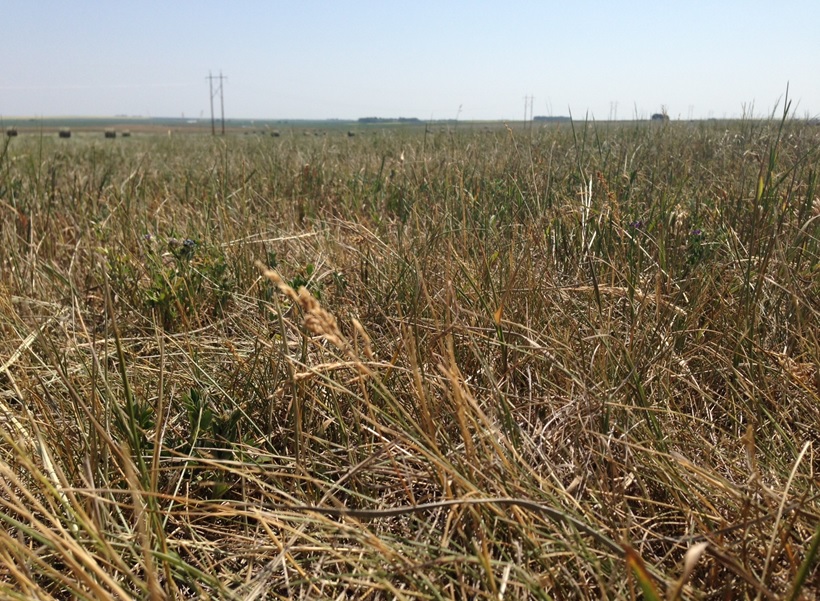While crops are developing quickly and normally in most of Saskatchewan, rain is needed to replenish rapidly deteriorating topsoil conditions.

Saskatchewan Agriculture said in its weekly report that many areas in the province remain very dry and crop conditions continue to decline due to the lack of moisture and hot temperatures.
READ MORE: Canada and Mexico look to increase agricultural trade
The high temperatures have caused heat blasting damage in many flowering canola crops.

Get daily National news
Significant rainfall has not been reported in many areas for a number of weeks. An exception is the Pelly area, which received 60 millimetres of rain in the past week.
The report stated that cropland topsoil moisture is rated 43 per cent short and 22 per cent very short, with another 32 per cent rated adequate and three per cent surplus.
Pasture conditions are also declining due to the lack of rainfall, with many hay swaths reported to be significantly smaller than normal and overall yields below average.
READ MORE: Province opens up land to farmers facing feed shortages
Hay is expected to be in short supply this year in some areas due to the arid conditions.
Hay land and pasture topsoil moisture is rated 37 per cent short and 34 per cent very short, with 26 per cent rated adequate and three per cent surplus.
Along with heat blasting, other crop damage in the past week was caused by hail, wind, localized flooding, diseases such as sclerotinia and insects such as aphids and wheat midge


Comments